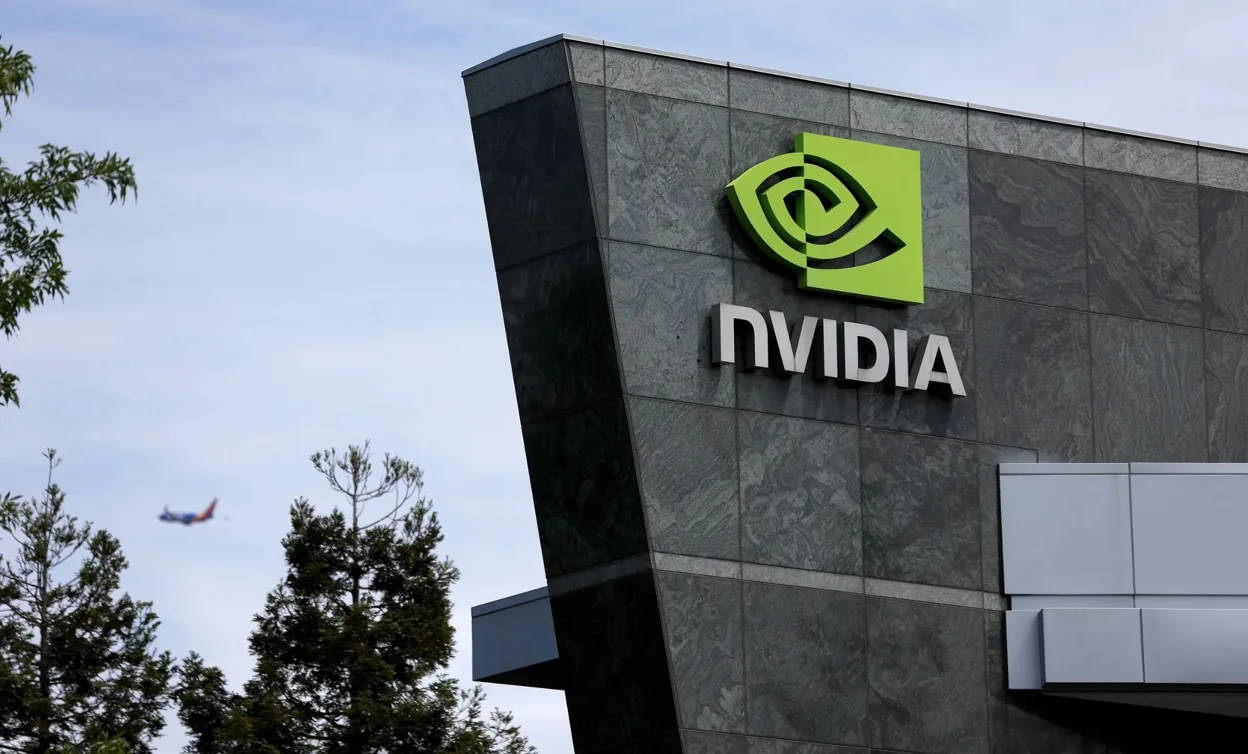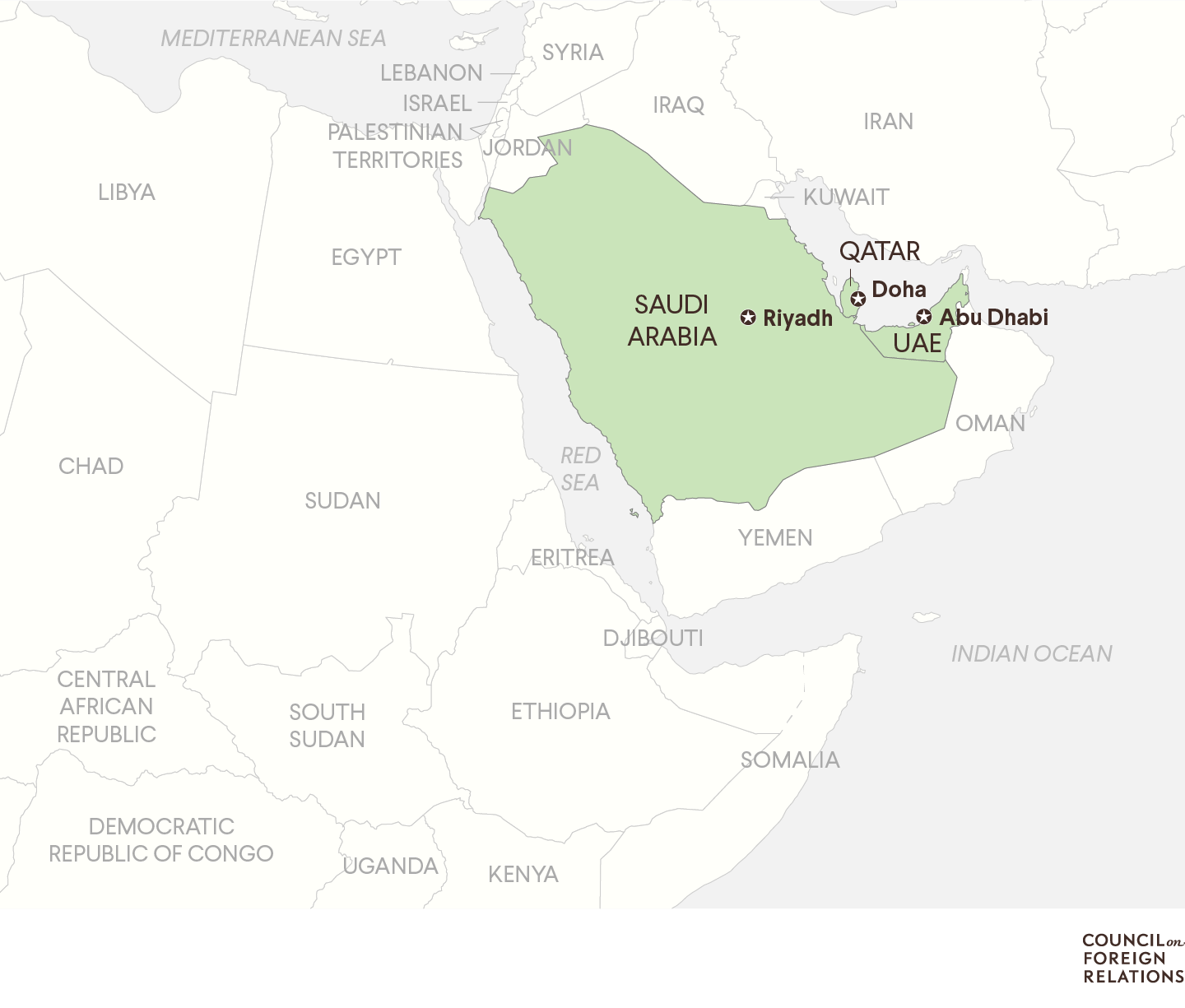The World
Nvidia Overtakes Apple as World’s Most Valuable Company
Nvidia, the leading provider of GPUs crucial for developing and running advanced AI software like OpenAI’s ChatGPT, experienced remarkable growth in 2023. As the primary supplier of GPUs for AI-powered computers, the company saw its revenue double in each of the past five quarters.

: Nvidia surpasses Apple to become the world’s most valuable company, driven by its dominant role in AI technology and GPU production.
Nvidia has surpassed Apple to become the world’s most valuable company, marking a significant shift in the tech industry driven by the explosive growth of artificial intelligence.
On Tuesday, November 5, Nvidia’s market cap rose nearly 3 per cent, closing at $3.43 trillion, edging past Apple’s $3.4 trillion. Nvidia’s stock, which has nearly tripled in value this year, finished the day at $139.91, though it saw a slight dip in after-hours trading.
Remarkable Growth Fueled by AI Demand
The company has seen extraordinary growth in 2023, cementing its position as the primary supplier of GPUs for AI-driven computers.
This surge in demand has resulted in Nvidia doubling its revenue in each of the past five quarters. Nvidia’s GPUs are integral to the development and operation of advanced AI technologies such as OpenAI’s ChatGPT.
Over the past five years, Nvidia’s stock has surged by more than 2,700%, propelling the company into the elite $3 trillion market cap club and briefly overtaking Apple as the world’s most valuable company.
Investors Bet on Continued AI Growth
“Over the past few quarters, it seems like the focus has been primarily on inflation data, employment figures, and Nvidia’s performance,” said Fall Ainina, director of research at James Investment Research.
“Nvidia surpassing Apple in market capitalization not only highlights its position as the leading beneficiary of the AI infrastructure boom, but it also signals that investors anticipate the AI surge will continue.”
Apple’s Struggle to Keep Pace with AI Leaders
While Apple, the first company to achieve $1 trillion and $2 trillion market caps, continues to navigate its role in the AI boom, Nvidia leads the charge in GPU production.
Apple’s shares have risen more than 20% this year, and it recently introduced Apple Intelligence on iPhones, touting a more private and useful AI experience.
However, Apple has faced challenges with a slow AI rollout and has secured fewer AI-powered chips compared to its competitors.
Nvidia’s Shift from Gaming to AI Innovation
Founded in 1991 to create chips for 3D gaming, Nvidia has thrived in recent years for an entirely different reason.
Over the past decade, researchers and scientists discovered that Nvidia’s chip designs, initially intended for rendering graphics, were ideal for the parallel processing needs of AI. In response, Nvidia developed specialized software and more powerful chips tailored to AI applications.

The World
Moniepoint Reaches Unicorn Status, Expanding Financial Solutions Across Africa
Moniepoint’s rise to unicorn status exemplifies a larger trend in the global fintech sector, where African tech startups are increasingly drawing significant investment and gaining a competitive edge in the global marketplace. As more African companies secure funding and recognition, the continent is becoming a key player in the global digital finance revolution.

: Moniepoint reaches unicorn status with $110M funding, expanding digital finance access across Africa, empowering businesses with innovative financial tools.
Moniepoint, a leading Nigerian fintech company, has officially joined the ranks of Africa’s tech unicorns, crossing the $1 billion valuation mark in October 2024 after securing a $110 million funding round.
This funding was led by Development Partners International’s ADP III fund, with contributions from Google’s Africa Investment Fund and Verod Capital.
As part of a burgeoning fintech industry in Nigeria, Moniepoint now stands alongside other notable unicorns like Flutterwave and Interswitch, illustrating the growing demand for innovative financial services across the continent.
Founded in 2015 by Tosin Eniolorunda and Felix Ike, Moniepoint began as a provider of digital banking infrastructure aimed at supporting other financial institutions.
Recognising the need for accessible banking solutions in Nigeria, the founders set out with a vision to bridge gaps in digital finance for underserved communities and businesses.
Eniolorunda explained, “Our mission is to empower businesses and individuals across Africa by providing secure, accessible, and innovative financial tools.”
A New Era for Moniepoint: $110 Million Investment
The substantial $110 million investment will fuel Moniepoint’s plans to expand its services beyond Nigeria and develop a comprehensive suite of digital financial tools for businesses.
With its rapid growth, Moniepoint currently processes more than $17 billion in monthly transactions, highlighting its crucial role in Nigeria’s financial ecosystem.
The funds are set to strengthen Moniepoint’s platform, enhance customer experience, and create job opportunities as it scales across the African continent.
Nigeria’s Thriving Fintech Industry and Rising Unicorns
Moniepoint’s unicorn status highlights the rise of Nigeria’s fintech industry, which has produced several tech unicorns in recent years.
Companies like Flutterwave and Interswitch have achieved global recognition, underscoring Nigeria’s reputation as a hub for fintech innovation.
The rise of these unicorns demonstrates the potential of African markets to attract significant investment and drive financial inclusion through digital services.
Expanding Financial Access Across Africa
With its newfound unicorn status, Moniepoint aims to offer African businesses enhanced banking solutions, including streamlined payment processing and secure, scalable digital services.
The company’s expansion aligns with its broader goal of supporting economic development and financial inclusion across Africa.
By empowering small and medium enterprises with accessible financial tools, Moniepoint is poised to play a pivotal role in shaping the future of finance on the continent.
Moniepoint’s success story reflects a broader shift in the global fintech landscape, as African tech companies attract substantial investment and gain a competitive edge in the global market.
Eniolorunda shared, “This milestone is just the beginning. Our vision is to continue driving digital finance across Africa and empowering businesses with the tools they need to succeed.”
The World
UAE’s Growing Influence in Horn of Africa: Ports, Military, Diplomacy
China and the US are intensifying their efforts in the Horn of Africa as the UAE expands its influence. China invests heavily in infrastructure through its Belt and Road Initiative, while the US maintains a crucial military presence in Djibouti, countering security threats from Camp Lemonnier.

: The UAE has expanded its influence in the Horn of Africa through strategic investments in ports, energy, and military presence, challenging China and the US.
The World
Donald Trump’s Victory: Impact on East Africa
As East Africa readies for a Donald Trump return, leaders balance caution with optimism on future U.S. ties. Trade and security may grow under his bilateral approach, yet concerns remain over potential aid cuts and climate inaction. Trump’s second term presents both opportunities and challenges for the region in a shifting global landscape

: How President Trump’s 2024 election win could influence trade, aid, and geopolitical dynamics in East Africa. Discover potential regional changes and effects.
His return to the White House has sparked questions across the globe, including in East Africa, where nations like Kenya, Uganda, Tanzania, and Ethiopia are anticipating shifts in U.S. foreign policy.
From trade and investment to geopolitical rivalry, East Africa stands at a critical juncture with the potential return of Trump’s America-first policies.
Trade Relations: A Potential Shift in AGOA and Bilateral Agreements
East Africa has long benefited from the African Growth and Opportunity Act (AGOA), a trade initiative launched in 2000 that allows African nations to export certain goods to the U.S. duty-free.
During his first term, Trump questioned the effectiveness of such multilateral agreements, often prioritising bilateral arrangements. This stance, usually dubbed “America First,” sparked concerns among African nations.
“President Trump’s approach to trade agreements tends to favour stronger bilateral ties over broader multilateral agreements,” noted former trade advisor Robert Lighthizer in 2020.
With Trump’s return, experts are speculating whether he might alter AGOA’s structure or even let it expire in 2025.
East African nations like Kenya have previously engaged in direct discussions with the U.S. for individual trade deals.
In July 2020, former Kenyan President Uhuru Kenyatta initiated negotiations with the Trump administration for a bilateral free trade agreement. Kenya’s current leaders may find Trump’s second term an opportune moment to push for a more solidified bilateral arrangement with the U.S. to secure market access.
Foreign Aid and Development Funding
Foreign aid has been a vital source of support for many East African countries, particularly in sectors like health and infrastructure.
The U.S. remains one of the largest aid contributors to Africa. However, Trump’s first administration proposed significant cuts to foreign aid.
In 2018, for example, the administration suggested a 30% cut to the State Department and the U.S. Agency for International Development (USAID) budgets, a move that was met with resistance in Congress.
During a 2017 White House press briefing, Trump stated, “We need to stop sending money overseas and focus on rebuilding our own country.”
Though the cuts were partially blocked by Congress, a similar agenda in Trump’s second term could create financial uncertainty for development projects across East Africa.
Programs like the President’s Emergency Plan for AIDS Relief (PEPFAR), which has saved millions of lives in East Africa since its inception in 2003, may face renewed scrutiny under a cost-cutting administration.
Experts warn that reduced funding could stall progress in combating diseases like HIV/AIDS and malaria, which remain critical public health concerns.
Military Cooperation: Counter-Terrorism Efforts in Somalia
East Africa’s strategic location has made it a key partner in U.S. counter-terrorism efforts, particularly in Somalia, where the militant group Al-Shabaab remains active.
The Trump administration made headlines in December 2020 by withdrawing approximately 700 U.S. troops from Somalia, emphasising the need to “bring our troops home.”
However, some of Trump’s advisors noted that he remains committed to securing U.S. interests abroad. “Our troops’ departure doesn’t mean we’re abandoning our interests in Africa,” stated former U.S. Secretary of Defense Mark Esper in 2020.
If Trump continues to prioritize U.S. security interests through remote strategies,East African countries might find themselves bearing a larger burden in counter-terrorism.
Somalia’s fragile government, along with neighbouring countries, may need to strengthen regional alliances and depend more on African-led security initiatives.
Geopolitical Influence: U.S.-China Rivalry in Africa
During Trump’s previous term, his administration increased its rhetoric against China, frequently cautioning African leaders about “debt traps” in China’s Belt and Road Initiative (BRI).
In a 2018 speech, then-Secretary of State Mike Pompeo remarked, “When China comes calling, it’s not always for the good of African nations.”
Trump’s approach to China raised concerns over Africa’s growing dependence on Chinese loans and investments.
Should Trump reengage with East Africa in his second term, we can expect his administration to push African nations toward alternative development partnerships.
Kenya, Tanzania, and Ethiopia, which have welcomed significant Chinese infrastructure investments, might be encouraged to turn to American private investments as an alternative.
Trump’s administration launched the “Prosper Africa” initiative in 2019, aimed at increasing U.S.-Africa trade and investment.
This program may see renewed emphasis under Trump’s second term, especially if he focuses on expanding American influence in the region.
Environmental and Climate Policy Implications
One key area where East Africa may see a divergence with Trump’s policies is climate action.
His withdrawal from the Paris Climate Agreement in 2017 concerned African leaders, given that Africa is one of the most vulnerable continents to climate change. Trump’s previous administration downplayed climate change, and his second term might similarly deprioritise green initiatives.
For countries in East Africa facing droughts, rising temperatures, and desertification, reduced climate collaboration could pose serious risks.
As Kenyan climate activist Elizabeth Wathuti put it, “Climate change is an immediate and real threat for us. We need global action, not indifference.”
If Trump remains steadfast in downplaying climate action, East African nations may turn to the European Union and other allies for environmental partnerships.
Conclusion:
As East Africa prepares for Trump’s return, leaders across the region are both cautious and optimistic about future U.S.-East Africa relations.
While trade and security partnerships may continue to flourish under Trump’s bilateral-focused approach, concerns over foreign aid cuts and climate inaction linger.
For East Africa, Trump’s second presidency presents both opportunities and challenges as the region navigates its path in an increasingly multipolar world.
-

 Business & Money9 months ago
Business & Money9 months agoEquity Group Announces Kshs 15.1 Billion Dividend Amid Strong Performance
-

 Politics3 months ago
Politics3 months agoFred Okengo Matiang’i vs. President William Ruto: A 2027 Election Showdown
-

 Politics2 months ago
Politics2 months agoIchung’wah Faces Mt. Kenya Backlash Over Gachagua Impeachment Support
-

 Politics5 months ago
Politics5 months agoPresident Ruto’s Bold Cabinet Dismissal Sparks Hope for Change
-

 Politics5 months ago
Politics5 months agoKenya Grapples with Investor Confidence Crisis Amid Tax Protest Fallout
-

 Politics5 months ago
Politics5 months agoPresident Ruto’s Lavish Spending Amid Kenya’s Economic Struggles Sparks Outrage
-

 Politics4 months ago
Politics4 months agoJohn Mbadi Takes Over Kenya’s Treasury: Challenges Ahead
-

 Business & Money1 month ago
Business & Money1 month agoMeet Kariuki Ngari: Standard Chartered Bank’s new CEO of Africa. What’s Next?




